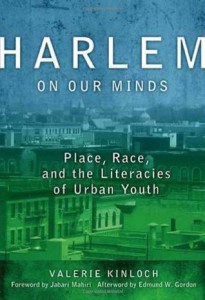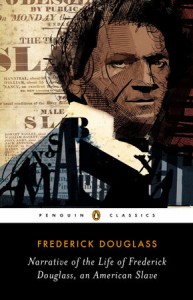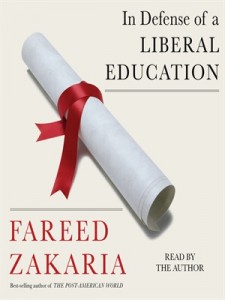 This month, I highlight an award-winning book by Valerie Kinloch, our new associate dean for the EHE Office of Diversity, Inclusion and Community Engagement (DICE). This is an ambitious book with an ambitious agenda; a book about the struggle of the urban underclass and the ways in which gentrification disempowered black young people in Harlem.
This month, I highlight an award-winning book by Valerie Kinloch, our new associate dean for the EHE Office of Diversity, Inclusion and Community Engagement (DICE). This is an ambitious book with an ambitious agenda; a book about the struggle of the urban underclass and the ways in which gentrification disempowered black young people in Harlem.
Kinloch’s book, “Harlem On Our Minds: Place, Race and the Literacies of Urban Youth,” also explores how learning to write re-empowered those young people and how teaching made that happen. Through her study participants’ eyes, we see the importance of place, strength, class, power, politics and identity formation spill across its pages. This book made me think about Weinland Park, Hilltop, the Near East Side and many of our other diverse neighborhoods in Columbus.
It also made me think about Frederick Douglass.
 I was lucky to find a copy of Frederick Douglass’ autobiography, Narrative of the Life of Frederick Douglass, An American Slave, in a used bookstore this summer. It was marked down to $2. I hadn’t read it before but decided I should. Little did I know how his story paralleled the story that Kinloch tells. Though the books are separated by more than 170 years, they elaborate on many of the same themes. Both emphasize the value of learning, the empowerment of writing, and the role of education in creating identity, self-awareness and hope in young African American men.
I was lucky to find a copy of Frederick Douglass’ autobiography, Narrative of the Life of Frederick Douglass, An American Slave, in a used bookstore this summer. It was marked down to $2. I hadn’t read it before but decided I should. Little did I know how his story paralleled the story that Kinloch tells. Though the books are separated by more than 170 years, they elaborate on many of the same themes. Both emphasize the value of learning, the empowerment of writing, and the role of education in creating identity, self-awareness and hope in young African American men.
These books made me gasp when I read them.
The stories of Hollywood have nothing on the realities that Douglass faced. In his book, he describes in detail how slaveholders “raised” children. Kinloch’s book also asks us to examine how we raise our children today. In both cases, words became the weapons of choice that the authors used to establish their place in society, physically, emotionally and intellectually. Both books make a strong case for literacy and good teaching and both give us insight into the burden (and strength) of being a person of color in this country. Both books instill a sense of hope, but hope is only realized out of understanding and action.
These books remind us of our mission in EHE and I hope they inspire you this academic year as well.
